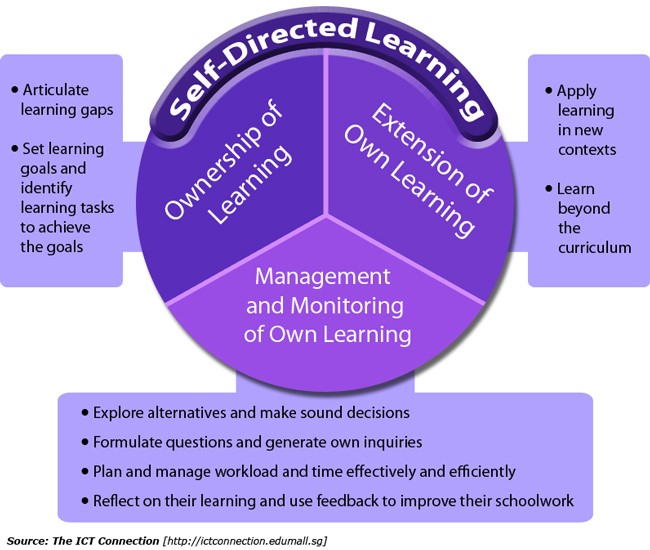Does Self Directed Learning Really Benefit Students?

The concept of Self Directed Learning (SDL) encourages students to develop their research skills, and interests and helps them enhance their cognitive abilities. This system of learning works particularly well in universities and colleges, as it encourages students to take up subjects or courses where they have to take the initiative. They are encouraged to think for themselves.
Pressures in the education system
In an education system that places passing exams at a premium, it’s difficult for a school child to find the time for additional research and work beyond that which will help them succeed in the end of year GCSE and A levels. Schools are beginning to embrace change and technology – many busy parents have benefited from the use of apps such as ParentMail which help them liaise directly with schools via email and text messages. Accepting these new methods of communcation can help to open the way for fresh approaches to education.
Broadening the mind with SDL
If you apply the word ‘education’ in its original sense, then you will try to encourage students to expand their own horizons and explore their chosen subject. For some students this is easy, others need a more rigid structure. If you were to ask some students to develop their initiative they might not understand that education doesn’t necessarily mean rigid adherence to a curriculum.
An article from The Higher Education Academy pointed out that some students from a more formal system of education and culture might also struggle with this concept. School students studying for A levels will discover that some elements of individual research will help them with their work. SDL will definitely be required at university level.
SDL applies to science as well as the arts
The American centre of medical excellence, Johns Hopkins Medical School tries to encourage its students to use SDL as part of their education. Researchers from the school claim: ‘through SDL you can control what you want to learn, how you want to learn and when you want to learn.’ Those who advocate SDL claim that these skills will help you throughout your life and not just in an academic environment.
One of the key skills that is developed with SDL is self-motivation. Einstein and Turing wouldn’t have made their astonishing discoveries if they hadn’t had a thirst for knowledge and also the tenacity to keep on following their own curiosity. Teachers who encourage SDL will give all their students of any age the confidence to start on a voyage of intellectual discovery.
SDL in schools
SDL can help students of all ages and abilities. Even school students studying under the constraints of the National Curriculum, should be helped to develop any areas that may show an examiner that they understand and have researched their academic subject. SDL skills can also be used in the work environment. Current management speak values ‘blue sky thinking,’ which is another way of encouraging initiative and innovation in the workplace, in other words, SDL under another name.

Julien Peter Benney
May 30, 2014 at 00:09It always seems to be that children need to be able to learn for themselves. In my own experience that is the only way I have ever really learned anything!
Lucy
May 31, 2014 at 06:42This type of learning was not encouraged at all when I was in the compulsory education system. As a result I floundered and failed at sixth form and college because I felt I lacked the skills (probably more like confidence) to go it alone. Thank you for explaining in a way I can understand :)
Lucy x